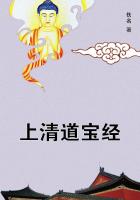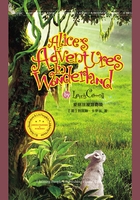It will require money. Mr. Smith did not give so favourable an account of Mr. Price as did Mr. Green. I did not see Mr. P---, for it would have been of no avail without having the plans, etc., and I cannot wait here to receive them. I shall have to send them, or to invite him to Lexington after my return. I propose to leave here, if nothing prevents, on Monday, 25th inst. If I go by Goshen, I hope to reach Lexington that night, or Tuesday morning after breakfast. I have heard a rumour that the water has been withdrawn from the canal above Lynchburg for the purpose of repairs. If that is so, I shall have to go by Goshen. My cold continues, but is better. The weather is very hot and to me is almost insupportable. At 6:00 P. M. yesterday, the thermometer in Ravensworth hall marked 86 degrees. This morning, when I first went out, it stood at 84 degrees. Thank Agnes for her letter. I cannot respond at this time. The letter you forwarded from Mrs. Podestad describes the sickness her children have passed through. She is now with them at Capon, and Miss Emily has gone to visit Mrs. Barksdale in Greenbrier. Mrs. P--- says she will be ready to visit you any time after the middle of August that you will notify her. I am glad all are well with you, and hope the garden will give you some vegetables. I am anxious to get back and see you all. Give much love to the girls, including the Misses Selden. Tell them they must not leave till I return, that I am hurrying back as fast as rheumatism will let me. I have abandoned my visit to Nannie and the boys on the Pamunkey. Tell them it is too hot and that I am too painful. Aunt M--- sends love to all. Remember me to all friends.
I must leave details till I return.
"Most truly and affectionately, "R. E. Lee.
"Mrs. R. E. Lee."
The building of the church here referenced to was the Episcopal church in Lexington, which it was proposed to take down and replace with a larger and better building. My father was a vestryman, and also a member of the building committee.
Dr. Buckler, whom my father had consulted in July, was at this time on a visit to Baltimore, having lived abroad with his family since 1866. When about to return to Paris he wrote and asked my father to accompany him.
This invitation he was obliged to decline.
"Lexington, Virginia, August 5, 1870.
"My Dear Doctor: I have just received your letter of the 4th inviting me to accompany you across the Atlantic, and I return you my cordial thanks for your kind solicitation for my health and comfort. There is no one whom I would prefer to have as a companion on the voyage, nor is there one, I am sure, who would take better care of me. But I cannot impose myself upon you. I have given you sufficient trouble already, and you must cure me on this side of the Atlantic. If you are the man I take you for, you will do so. You must present my warmest thanks to your wife for her remembrance of me and her kind offer of the hospitalities of her house. Should I ever be able to visit Europe I shall certainly accept them, but I hope she will soon return to this country and that you will bring her up to the mountains to us. We are all peaceable here now and she will find that we are not as bad as we have been reported to be, and every one will extend to her a hearty welcome, whereas Europe is now convulsed with the horrors of war or the agony of its expectancy, and I fear for a season is destined to feel the greatest calamity that can befall a people.
I am pursuing your directions and hope that I am deriving benefit from them. I have made my arrangements to visit the Hot Springs, Virginia, on Monday next, as you recommended, and trust I may find relief from them. My rheumatic pains continue, but have diminished, and that in my shoulder, I think, has lessened under the application of the blister. I shall endeavour to be well by the fall. The letter you inclosed to me was from Mrs. Smith on the Hudson--and not from Mr. Henry White, as you supposed. Good-bye, my dear doctor; may you have a prosperous voyage and find your family all well on your arrival, and may your own health be entirely restored. My family unite with me in every kind wish, and I am most truly, "Your friend, "R. E. Lee.
"Dr. Thomas H. Buckler."
This letter to General Cooper (Adjutant General of the Confederate States Army), written at this time, explains itself, and is one of many witnesses of my father's delicate consideration for old soldiers in distress:
"Lexington, Virginia, August 4, 1870.
"General S. Cooper, Alexandria, Virginia.
"My Dear General: Impressed, with all the people of the South, with your merits and services, I haev with them admired your manly efforts to support your family, and have regretted that more remunerative occupation, better suited to your capacities and former habits, had not presented itself. This has been a subject of conversation with some of us here, and when in Savannah last spring I presented it to General Lawton, Colonel Cole, and others, and suggested that efforts be made to raise a sum for the relief of any pressing necessity.
The idea was cordially adopted, and it was hoped that an amount would be contributed that would enable you to receive some relaxation.
I have received a letter from General Lawton regretting the smallness of the sum collected, $300, and explaining the delay that had occurred, the general poverty of the people, the many calls upon them, and the disposition to procrastinate when facts are not known to them personally. To this sum I have only been able to add $100, but I hope it may enable you to supply some immediate want and prevent you from taxing your strength too much. You must also pardon me for my moving in this matter, and for the foregoing explanation, which I feel obliged to make that you might understand the subject.
"With my best wishes for your health and happiness and for the useful prolongation of your honourable life, I am, with true regard, "Your friend and servant, "R. E. Lee."















